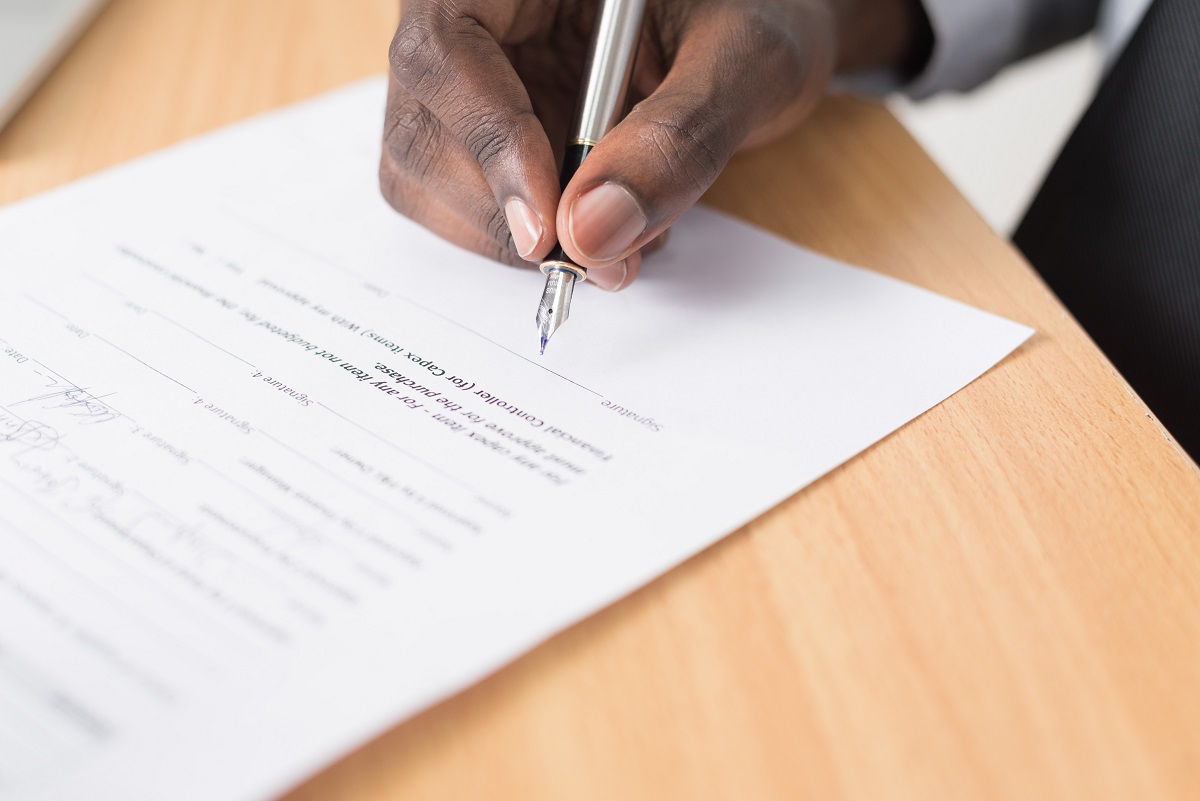Buying a home or property is an exciting process no matter whether you are buying your first home or your third home. However, getting a mortgage even if you have an amazing credit history and score, have saved up sufficient funds for a down payment, closing costs, and more, getting a mortgage is still a process that will take time, paperwork and bureaucracy.
In other words, it’s time to prepare yourself for the fact that you can apply to be pre-approved or prequalified for a mortgage or for a mortgage but it is not something that is immediate. If you were thinking that you have all of the paperwork ready, all of the funds saved up, excellent credit, etc. that you could get approved instantaneously if only financial processes were so efficient and painless.
How long it will take for your mortgage application to process depends on your lender, financial institution, mortgage broker, etc. your financial situation, credit history, and other factors.
Related article: How to choose the right mortgage broker in Toronto?
However, if you are worried that this might take a while for you, there are steps that you can take to help speed up this process. If you are applying for a mortgage and when the time comes to speak with someone who can help and you have all of the documents you will need to submit for your application to be processed, this should help speed up the process.
While there are some things in life where we can get away doing them without a lot of advanced preparation or consideration beforehand, unfortunately, this is not the case. Something to consider if you are applying for a mortgage, you will also need to be prepared for the fact that your mortgage broker, financial institution, bank, potential lenders, etc. will be digging up your financial and credit history.
In other words, if you are looking to get a mortgage within the next 6-12 months, if you can avoid it, it’s recommended you avoid opening new credit cards or lines of credit or making any big purchases until after your real estate transaction has gone through. If you are getting a mortgage and then decide to make a big purchase while in the process of closing on a home, this could jeopardize your ability to get or keep your mortgage.
While getting a mortgage is a huge step and there is a lot to think about, if you are feeling anxious, afraid, scared, etc. take a moment and some deep breaths. Yes, this is a big process and can feel daunting but this guide is meant to make it easier for you to understand what documents and information you might be required to submit when applying for a mortgage. It is important to note that the checklist provided in this guide for your first mortgage documents checklist if you are applying for a mortgage in Canada, represents some guidelines for what documents you might need to present.
Depending on your financial situation, employment history, the type of mortgage you want to apply for, credit history and score, financial institution, lender, mortgage broker, and other factors, you may need to present more documents than those listed below. This list is not the be-all and end-all for all of the documents you will need to present when applying for a mortgage.
Related article: How to Boost a Low Credit Score (and Qualify for a Mortgage) in Ontario?
This article is meant to be a jumping-off point so you can gain an understanding of what documents you might be expected to present and why potential lenders need these documents to process your mortgage application.
Please note that this checklist of documents only applies if you are applying for your first mortgage even if you are applying for a second mortgage or trying to refinance your existing mortgage, you will be asked to provide slightly different documentation than what is outlined here.
First Mortgage Documents Checklist
Income Verification and Employment Verification Documents
For salaried employees
- Copy of your latest payslip/pay stubs from the last 30 days they should include information that indicates the rate of the pay period, net and gross income, taxes, and deductions for benefits
- A letter of employment from your employer: It must be current within 30 days printed on company letterhead (including full address, contact information: your employer’s phone number, email, fax number, for your employer) and it should be signed and dated confirming your salary, employment tenure (how long you have been with your employer), and your position, and when applicable, information on overtime, bonuses, pending increases or car allowances should be documented in this letter.
Employment and income verification documents if you are an hourly employee
If you are applying for a mortgage and you are an employee paid on an hourly basis, you will need to supply a recent pay stub (ideally no older than 30 days old) a letter of employment and last year’s Notice of Assessment (NOA). These are some of the documents that financial documents would prefer to use to verify your income.
The letter of employment should contain the following information:
- The number of hours that you work on average each week
- Your hourly rate of pay
- Your year-to-date earnings
- Tenure as an hourly employee (how long you have been with this employer)
- Your position
This letter should be written on company letterhead and signed by a person who is in a position of authority and should have been written during the past 30 days.
Related article: The Ultimate Buyer’s Guide for Buying a House in Toronto
Income and Employment Verification Documents if you are self-employed
- If you are self-employed you should expect to show that you have a minimum of two years of earnings as a self-employed person
- Your income must be verified using financial records prepared by a licensed accountant
- T1 Generals and Notices of Assessments (NOAs) can be used to verify the income on financial statements and records
Documents if you own a small business, are a sole proprietor or in a partnership
Usually, small businesses, one-person businesses, partnerships or sole proprietorships might not have complete financial records or financial records that have been prepared by a licensed accountant. If this is the case, you can submit a Notice of Assessment (NOA) from the past two years, T1 Generals including all schedules can be used to verify income.
General Employment and Income Verification Documents
- Notice(s) of Assessment (NOA)
- T1 General(s)
- T4 General(s)
Verifying income if you have other income sources
- Legal agreements for spousal support, alimony or child support
- Income from stocks, investments, trusts, etc.-Statements from your investment portfolio/trusts, etc. and information on your stock holdings
- Other compensation from other jobs as applicable
- Other compensation such as pension, disability benefits, rental income, etc.
Basic Financial Information
- A void cheque
- A list of your current assets and liabilities, i.e. debts
- Bank account number, routing/transit number for payments
- Your driver’s license or other government-issued photo ID
- If you had any large deposits you may need to present a certain amount of months of bank statements so these deposits can be confirmed
Related article: Can U.S. citizen buy property in Canada?
Confirmation of your down payment
- Statement from a bank account(s) during the last 90 days which demonstrate that you have sufficient funds to cover a down payment, closing costs, etc.
- If you are getting a gift from a relative or employer, a letter from the person or entity gifting you the funds saying the funds are a gift that is unencumbered and requires no repayment. Potential lenders will be verifying that the gifted funds will be deposited into your account before closing
- Withdrawal from the RRSP under the Home Buyer’s Plan if applicable
Property Details
- A copy of the accepted purchase and sale agreement (if you have a contract on the home since this might not apply if you are applying to be pre-approved or pre-qualified for a mortgage before you begin to look at homes
- Verification of the deposit you placed on the home (if you have placed a deposit on a home, this might not apply if you are trying to get pre-approved or pre-qualified for a loan before purchasing a home
- Names, addresses and telephone numbers of all real estate agents, builders and developers (if you are buying pre-construction or newly built home), insurance agents and attorneys involved
- Copy of Listing Sheet (feature sheet) with the property’s complete address
- The legal description of your property (if you are not sure where to look for this information, you can find this on your property tax statement or original purchase agreement)
- If the property is a condominium please provide condominium declaration, by-laws, condo fees, and most recent budget for the condo or homeowner’s association
- Property tax estimates and heating costs
- Copy of appraisal (Lenders want to have the home or property appraised so they know that you are paying the fair market value for the home or property and you are not overborrowing because you are overpaying because you are overpaying
- Property tax estimates, condo fees and heating costs, (usually available on the real estate listing)
- If you are purchasing a property or home in a rural area be prepared to provide a septic system and well certificates
- You might also be asked to provide a home inspection report
- MLS listing for the property or home you want to purchase
Related article: How to Find the Best Place to Live in Toronto
Additional Information you might be asked to provide
Rental history from your landlord if you are renting with evidence of one year’s worth of cancelled rent checks so that you can show that you paid your rent on time and can show a pattern of paying this bill on time.
If you have had any past issues with credit or loans you might need to write a letter to explain what happened and how things have changed for you and have improved, a well-written letter explaining what happened, how you have learned and how things have changed can help you to secure a loan for a home if you have previously had some issues with credit in the past. It might seem a bit much to be vulnerable and explain what happened but this can help you.
Conclusion
Hopefully, after reading this article, you will have gained a clearer understanding of what applying for your first mortgage in Canada will be like and what documents and information you will be expected to provide potential lenders when applying for your first mortgage. It is important to remember that what documents and information you might actually be required to provide might differ from what is outlined here in this article.
Each person’s financial, credit, and employment histories and situations are different, so do not be surprised if a potential lender needs or asks for you to provide additional documentation or information not mentioned in this article so they can process your application.
Related article: 5 Common Mistakes to Avoid for a First Time Home Buyer in Toronto
It is important to remember that lenders, financial institutions, banks, mortgage brokers, etc. are taking a risk whenever they give out loans, mortgages, lines of credit, etc. even to individuals with excellent credit histories and financial situations.
Since those charged with giving out loans are taking a risk by giving out loans, they have to do their due diligence to protect themselves and ensure that they are giving out loans to individuals and others who appear that they are least likely to go into default, pay on time, etc. This is one reason why they need this information from potential customers before deciding to give them a loan, line of credit, etc.
Related article: How to choose the right mortgage broker in Toronto?
Photo by Cytonn Photography on Unsplash
- The Impact of Interest Rate Cuts on Toronto’s Housing Affordability - April 23, 2025
- Bank of Canada Holds Interest Rate Steady Amid Tariff Uncertainty - April 19, 2025
- The Impact of Interest Rate Cuts on Toronto’s Housing Affordability - April 11, 2025



